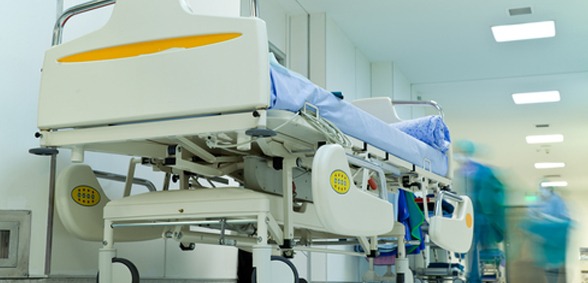
BMA research has revealed that patients are being routinely cared for in ‘temporary’ beds, as hospitals in England struggle to cope with rising demand
New evidence by the BMA shows that NHS hospitals in England are facing an ever-increasing struggle to cope with patient demand.
The data reveals hospitals are now routinely caring for patients in beds that should be used only in emergencies or when there are spikes in demand, such as during winter months.
Using Freedom of Information requests, the BMA has found hospitals in England are regularly using these extra beds, called ‘escalation beds’, for routine care.
Doctors report that beds which should be for patients who have left operating theatres are being commandeered as escalation beds, and this can lead to cancelled operations for planned surgery and delays for emergency surgery, as there is no place for these patients to recover. Patients have also been put on beds in other hospital facilities despite a lack of room in those areas.
The research is based on two waves of BMA freedom of information requests to NHS hospital trusts in England asking how many escalation beds were in use from March to May this year. Escalation beds are separate from the standard stock in hospitals. They can be mothballed beds that are kept in reserve or additional or repurposed beds brought into other clinical areas.
The findings come as NHS chief executive Simon Stevens acknowledges that hospitals would need to increase bed capacity to deal with demand, after years of reductions. The BMA has previously said that the NHS needs 10,000 extra beds to guarantee safe care all year round3.
Dr Rob Harwood, BMA consultants committee chair, said: “The use of escalation beds is a sign that trusts are at a critical stage and are unable to cope with demand with their current bed stock. Some hospitals are forced to designate their theatre recovery beds as ‘escalation’, resulting in elective surgical operations being cancelled as there is no space for those patients who need immediate care after their surgery.
“I have heard of other cases where beds in Day Procedure Units – surgical units for patients who can have their operation and return home on the same day – are used as escalation spaces for admitting patients for longer ward-style care, meaning healthcare staff cannot continue with routine day care surgical cases.
“Most worryingly, the intense pressure on beds can result in patients being placed on beds in corridors or in bits of other facilities, sometimes cramping treatment areas and causing unacceptable stress to the patient and their families.
“It is obvious in these circumstances that there are also not enough staff to cope with the number of people coming through the hospital’s doors.
“It cannot be right that the NHS is having to use these measures almost permanently, especially when the BMA, other leading healthcare bodies and patient groups have offered solutions.
“The BMA has been lobbying for thousands of extra beds to be brought into use with the right levels of staff to support them.”
Don’t forget to follow us on Twitter, or connect with us on LinkedIn!

Be the first to comment